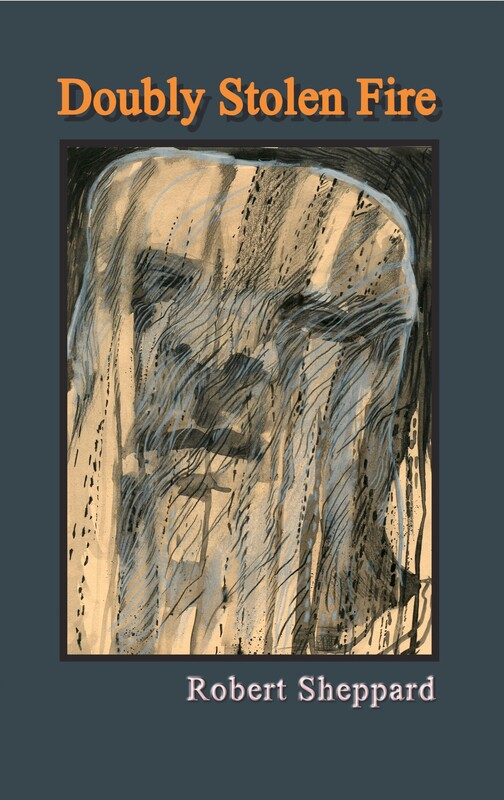
Sophie Poppmeier (1981-) Austria
Sophie Poppmeier’s poetry publications are Book One (2002), Book Two (2003), Book Three (2013) and Book Four (2015). Her theoretical ‘memoir’ of her years as a burlesque artist in Vienna, Minnie Minerva’s Book of Marvels was published in 2016 (second edition 2017). Poppmeier was born in Salzburg in 1981, and has lived in Vienna and Bratislava, but now mainly resides in Berlin, where she runs performance and writing workshops. Nearly all of her poems are in her famous four line stanza, in which she plays off regularity against irregularity, long against short, a poesis that she sometimes jokingly compares to the balance and teasing poise of the burlesque artist, and sometimes to the bodily constraint and ironic performative freedom of corsetry. Masks, disguises and partial disclosures abound in her early work. But she has quoted Freiderike Mayröcker for this analogy: ‘flesh of the poem, the/ torments severe, I vanish in the/ line-break’; the world ‘snuggles gently up to the/ line-knee’. Poppmeier’s habit of nearly always entitling her poems Book X Poem Y is another trademark. Critics have called this a gimmick, but the presentational austerity is an answer to the ‘problem’ of titles (a problem she does not seem to have encountered as a performance artist, but it may well be in reaction to the need to define, fix and advertise an ‘act’ for a ‘show’ that she dispenses with such ‘labels’ as she calls them). Book Two, published very soon (too soon, critics aver) after Book One, is the exception. Here she (temporarily) abandoned her titling system and the four line stanza. The book was largely an exploration of her work in burlesque (coming from the years of her first period of performance around the turn of the century) and was slated, particularly by feminist critics, who dubbed her the ‘Whore of Babelfish’. A cooler look at the poems will indeed judge them to be inferior to the rest of her work, but the free-ranging and personal style (owing somewhat to the poems that Mayröcker was writing at the time, but wildly sexual) does have its defenders. One is the young British poet Jason Argleton, who translated this work into English, although René Van Valckenborch seems to have presented her first, claiming even to have invented her. As a burlesque dancer, she performed as Minnie Minerva (but occasionally as Polly or Poppy Polidori or – in Berlin – Angela Merkin). Tall, with long black hair, her long nose, her heavily made-up eyes used to dramatic effect, she was an immediate and authoritative success (particularly with women). Her best early work includes the ‘Ute Lemper Trilogy’, a 15 minute piece combining the swirling silk sea waves and bejewelled seashell bodice of ‘Little Water Song’; ‘Streets of Berlin’, a mimed drag-king boylesque; and ‘You Were Meant for Me’, in which she confronted the audience with ‘unbridled displays of female desire’, to quote a programme of the time. Her ‘Narcotango’ used the hypnotic grooves of Carlos Libedinsky’s new tango (‘Luz y Subi’, ‘Otra Luna’ and ‘Doble o nada’) for her neo-burlesque exploration of intoxication and trance. ‘Neveen’s Levee’, which featured the music of Salah Ragab and the Cairo Jazz Band, involved a reverse dressing routine and faux-Oriental dance (plus Oulipean play on the letter ‘e’ in the accompanying poem). The matching ‘Madame Mallarmé’s Fan Dance’, featuring Debussy’s ‘Poisson d’or’ from Images (Set Two), was the most literary (and least appreciated) of her acts. Indeed, both these pieces prompted poems of their own, published in Book 3 and collected in the anthology Twitters for a Lark: Poetry of the European Union of Imaginary Authors, which was to prove the swan-song of that pan-European literary organisation. Poppmeier was at one time the youngest member of that grouping. Perhaps in reaction to the criticism of the second book, she gave up poetry and burlesque (on the brink of considerable success following her performance at the Berlin Burlesque Festival), but the truth may be less dramatic, since these were the years she studied Art History in Vienna, gaining a PhD in 2010 – she herself has talked of ‘collecting experiences’ in those years – and it is not clear that she didn’t continue writing (while not publishing) and teaching and theorising burlesque (but not performing, although she was rumoured to have ventured out under cover of several of her alter-egos when impecunious). Minnie Minerva’s Book of Marvels, despite its engaging title, is a theoretical defence of the art of neo-burlesque, and has been compared, by Argleton, as analogous to, yet superior to, de Campos’ work on bossa nova. She argues that neo-burlesque is an enabling and safe, but public way, of exploring and asserting various conflicting models of female body-awareness (not just beauty) and female fantasy and sexuality (auto-, homo-, hetero- and trans-). It draws on her experience of facilitating workshops for differently-abled and neurologically atypical people and running the annual pan-European Ugly Bug’s Burlesque in Bratislava. As she explained on the Feathers and Glitter website: ‘This is what we have to do, those of us with nineteenth century bodies in the twenty-first, to turn the ordinary mousy split-end prose of life into the extraordinary shiny jet fringed poetry of empowerment!’ Book Three was judged a mature work when it appeared in 2013. The earlier wide-eyed excitement (the febrile desire for ‘my chants to change my life’ in her first poem, for example) has given way to an aesthetic and political sensibility reacting to a more disordered political reality, more desperate to be sure, but more exciting perhaps for the reader. In some ways she turns to the political side of Bachman rather than to Mayröcker, her first love in contemporary Austrian poetry. The German poet Karla Schaffer, nine years her senior, has had some influence upon her work and life. Book Four was widely anticipated and appeared in 2015. (See the link below to a typically confident extract referencing Lutz Seiler’s poems). Minnie Minerva’s Book of Marvels followed in 2016, to coincide with her much-anticipated return to the stage. Now performing what she called ‘dirty burlesque’, her controversial and widely-condemned piece ‘Pegging Putin’, developed her Angela Merkin persona further, complete with strap-on. It was ‘an exposé of bare-chested, bear-baiting masculinity’, as she explained in the afterward to the 2017 edition of her book, which marked her renunciation of burlesque as a performance style. Some saw this as equivalent to the literary excess (and notoriety) of Book Two. After the break up of the European Union of Imaginary Authors, in 2017, as recounted by Jurgita Zujūtė (here), Poppmeier joined Zujūtė, Jitka Pruchova and Trine Krugelund to form the more exclusive EUGE (European Union of Generative Experimentalists). Taking the uncompleted work of their deceased sister poet, Lucia Ciancaglini, they contracted to continue her poem & (in which the ampersand repeats hypnotically) into perpetuity, by agreeing to add consecutive lines in succession, multilingually. At some point (we think with the advent of the Covid pandemic) Sophie withdrew from the arrangement. At the moment the remaining three are engaged in the task. They have complex rules about being replaced by other writers in order to carry on the eternal act of writing, should they wish, or are forced, to leave. This generative work may constitute the longest ongoing literary work (measured temporally at least). As a solo writer once more , Poppmeier herself is currently working on new poems for what one can only assume will be entitled Book 5. However, according to Jason Argleton, lockdown was quite demanding for her, locked in a Berlin apartment with only her mannequin (a prop from her last days as a dancer) as company. She claims that the mannequin began talking in English at one point. Again, according to Argleton, the mannequin (which turns out to be British) began reciting an entire anthology of radical British poetry from the 1950s. Two relevant posts about her burlesque work may be read here and here. (Warning: some of the links on these posts no longer work.) Beginning of ‘A Fictional Poet’s Notebook’, i.e. instalment one of Sophie’s lockdown diary: https://robertsheppard.blogspot.com/2021/10/a-fictional-poets-notebook-entry.html And the beginning of a second series: https://robertsheppard.blogspot.com/2022/02/reflections-on-fictional-poetry-and.html This notebook is now published in Robert Sheppard's 2023 volume Doubly Stolen Fire, a volume she shares with Ern Malley, a talking mongoose, Malcolm Lowry and Sheppard himself. See here and here for buying this volume. See cover image to the left of this column. This brings Sophie Poppmeier's story up to date, as summarised above, but it leaves her contemplating writing Book Five or even Book Six in her cycle of poems. However, these have not been published yet. Indeed, as a fictional poet she need not produce any further poetry (which is an argument recounted in Doubly Stolen Fire. The book also contains hints about the whereabouts of Rene Van Valckenborch, though not in geogrpahical terms. Further fictional poets play peek-a-boo with the reader in guise of the poems spouted by Sophie's mannequin (which she has disposed of): poems and rumours of poets from the British 1950s that aren't clones of Larkin or John Wain. A poem from Book 4 may be read online here. Another poem may be read below: Book 3 Poem 5 ‘My thighs bulge like chicken drumsticks but I’m still shooting behind my mask. Its face became punched by a streak of white before its starry eyes. My wife shares these swellings, though sexier. She makes foreign policy with giraffes, social theory with foxes, traffic regulations with natterjacks. These bulges could be testicles and the students laugh, setting fire to the fleet. I couldn’t move to help them.’ |

